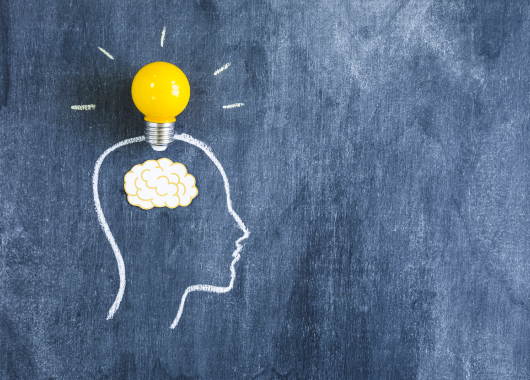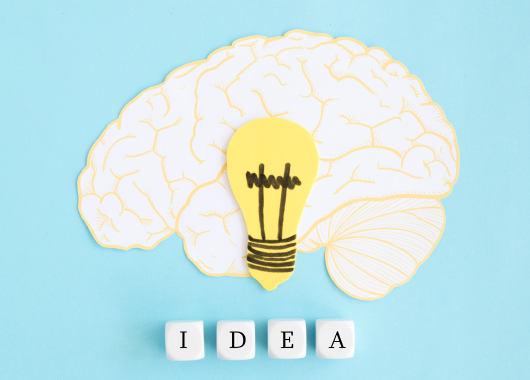How Physical Exercise Enhances Cognitive Function and Memory Retention

Introduction
We often think of exercise as a way to stay in shape, build strength, or shed a few extra
pounds. But did you know that working out can do wonders for your brain as well?
Physical exercise isn't just about building muscles or improving cardiovascular health; it
also plays a crucial role in enhancing cognitive function and memory retention. In recent
years, science has uncovered a powerful link between regular exercise and brain
health, proving that staying active can help you think more clearly, learn faster, and
remember information longer. Let's explore how exercise boosts brain power and why
it's one of the best ways to keep your mind sharp.
The Brain-Body Connection: How Exercise Impacts Cognitive Function
When you engage in physical activity, your heart rate increases, pumping more blood
and oxygen to all parts of your body, including your brain. This increased blood flow
delivers essential nutrients that help nourish brain cells, supporting overall cognitive
function. But exercise does much more than just deliver oxygen; it actually triggers a
series of biochemical processes that strengthen the brain.
One of the most significant effects of exercise is the production of brain-derived
neurotrophic factor (BDNF), a protein often referred to as "fertilizer" for the brain.
BDNF promotes the growth, maintenance, and survival of neurons, which are the cells
responsible for transmitting information in the brain. When you exercise, you effectively
create an environment that encourages brain cell growth and enhances communication
between neurons, leading to improved learning and cognitive performance.
Exercise and Memory Retention
Memory is a fundamental aspect of our cognitive abilities, allowing us to store, recall,
and use information when needed. Regular physical exercise plays a vital role in
enhancing both short-term and long-term memory retention. Here's how:
- Hippocampus Growth: The hippocampus is a region in the brain that plays a critical role in forming and storing memories. Studies have shown that regular aerobic exercise, such as jogging, swimming, or cycling, can increase the size of the hippocampus. This growth is associated with better memory retention and the ability to learn new information more effectively.
- Improved Blood Flow: Exercise increases blood flow to the brain, delivering oxygen and nutrients that support the formation of new neural connections. These connections help solidify memories, making them easier to recall later.
- Reduction of Stress and Anxiety: High levels of stress and anxiety can interfere with memory and learning. Physical activity reduces the production of stress hormones like cortisol, which can negatively impact the brain. As a result, exercise helps create a calmer, more focused state of mind, making it easier to retain and recall information.
 Different Types of Exercise and Their Effects on the Brain
Different Types of Exercise and Their Effects on the BrainNot all exercise is created equal when it comes to cognitive benefits. Different types of physical activity have varying effects on the brain:
- Aerobic Exercise: Activities such as running, brisk walking, swimming, and cycling are highly effective at boosting brain health. Aerobic exercise increases the production of BDNF and improves blood flow, making it one of the best ways to enhance cognitive function and memory retention. Regular aerobic exercise has also been linked to better performance on tasks that require attention, problem-solving, and decision-making.
- Strength Training: Lifting weights or doing resistance exercises may not seem directly related to brain health, but research suggests that strength training can also have cognitive benefits. This type of exercise has been shown to improve executive functions, such as planning, organizing, and multitasking. Additionally, strength training helps regulate insulin levels, which can support brain health and reduce the risk of cognitive decline.
- Yoga and Mindful Movement: Activities that combine physical movement with mindfulness, like yoga and tai chi, can enhance cognitive function by reducing stress and promoting relaxation. These exercises help improve focus, concentration, and mental clarity while also supporting memory retention through increased blood flow to the brain.
- Coordination and Balance Exercises: Activities like dancing, martial arts, or playing sports require coordination and quick decision-making, which challenge the brain to adapt and process information rapidly. Engaging in these types of exercises can improve cognitive flexibility and reaction times, making the brain more agile.
The Long-Term Benefits of Exercise on Brain Health
One of the most exciting aspects of exercise is its potential to protect the brain as we age. Regular physical activity has been shown to slow down the natural decline in cognitive function that comes with aging. Here's how exercise provides long-term benefits:
- Prevention of Cognitive Decline: As we age, the risk of cognitive decline and conditions like Alzheimer's disease and dementia increases. Engaging in regular physical activity has been shown to reduce the risk of developing these conditions by maintaining the health and integrity of brain cells.
- Enhanced Neuroplasticity: Neuroplasticity is the brain's ability to reorganize and form new neural connections. Exercise promotes neuroplasticity, allowing the brain to adapt, recover from injuries, and compensate for age-related changes. This adaptability is crucial for maintaining cognitive function as we grow older.
- Better Mood and Mental Health: Exercise stimulates the production of endorphins, often referred to as "feel-good" hormones, which help reduce symptoms of depression and anxiety. A positive mood is linked to better cognitive function and memory retention, creating a cycle where exercise not only improves mental health but also boosts brain power.
Incorporating Exercise into Your Daily Routine
If you're ready to harness the cognitive benefits of exercise, here are some tips to help you incorporate physical activity into your daily routine:
- Start Small: You don't need to run a marathon to experience the benefits of exercise. Begin with 20-30 minutes of moderate activity, such as walking, jogging, or yoga, a few times a week, and gradually increase the duration and intensity.
- Mix It Up: Engage in different types of exercise to stimulate different areas of the brain. Combine aerobic workouts with strength training, yoga, or activities that challenge coordination.
- Stay Consistent: Consistency is key to reaping the cognitive benefits of exercise. Aim for at least 150 minutes of moderate aerobic activity or 75 minutes of vigorous activity per week, along with two days of strength training.
The connection between physical exercise and cognitive function is undeniable. Regular exercise not only strengthens our bodies but also fuels our brains, enhancing memory retention, improving focus, and protecting against cognitive decline. By incorporating exercise into your lifestyle, you're investing in your brain's health and unlocking its full potential. So, whether it's a morning jog, an evening yoga session, or a quick weightlifting routine, remember that each movement counts towards building a stronger, sharper mind. Your body and brain are partners in your journey to better health—start moving today, and give your brain the workout it deserves.
